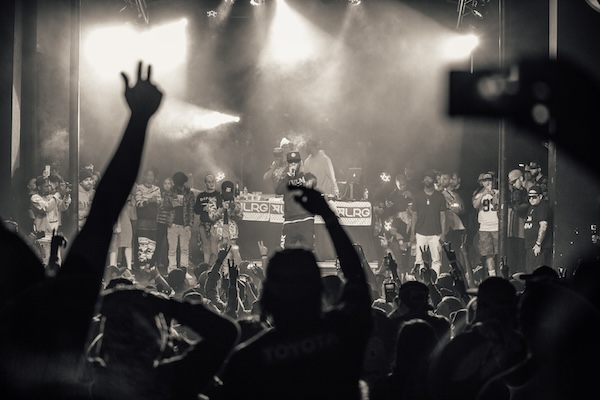The casino and hip-hop industries share a fascinating number of parallels. Whereas the world of gambling and casino gaming has deep roots that can be traced back decades and even centuries, hip-hop as a distinct musical genre is a relatively recent phenomenon which can trace its origins to 1970s New York.
Early Dot Com Era
However, despite the success of early pioneers such as The Sugarhill Gang, Run D.M.C. and Public Enemy, it arguably wasn’t until the arrival of the 1990s that hip-hop aspired to true mainstream global appeal.
Notably, it was around this time that the casino industry itself was taking its first steps on a path that would lead to it becoming a far bigger, more lucrative and diverse market than it ever was when confined to the brick-and-mortar venues of the Las Vegas strip. We are of course referring to the rise of online casino gaming, otherwise known as iGaming.
The internet, still comparably limited and under-utilized in the early 90s, would soon come to impact the spread of hip-hop as well, with artists ranging from Nas and the Wu-Tang Clan, to Snoop Dogg and Eminem experiencing a substantial uptick in sales, and with it, mainstream cultural relevance, as a result of the organic promotional influence of the world wide web.
Y2K Breakthrough
By the time both nascent industries reached the millennium, their understanding of this technology and ability to leverage it further contributed to their ongoing development. For online casinos, it was around this moment that internet speeds began to increase, facilitating more sophisticated and eye-catching games and services. The poker boom, which took place across the years 2003 to 2006, was also a watershed moment that not only validated online casino gaming in the mainstream, but massively increased investment in the sector.

Likewise, this same period coincided with what may be thought of as the peak of hip-hop’s mainstream success. Major record labels at this time were throwing all their resources at cultivating exciting new talent and promoting major crossover releases such as Missy Elliott – “Work It”, 50 Cent – “In da Club” and Nelly’s “Hot in Herre”, topping the billboards. Likewise everything from fashion to Hollywood was adopting hip-hop tropes and aesthetics, all driven by the network effect of the internet.
Mobile Gaming
For both industries the intervening two decades have been a story of refinement, diversification and maturation. The online casino sector, for example, experienced a substantive boost in its growth as a result of the arrival of the mobile app ecosystem. This not only paved the way for new demographics of players around the world to access and enjoy casino gaming by way of mobile-optimized platforms, but it led to the sector more closely integrating itself with the wider video games industry.
Additionally, as the market has continued to develop, dedicated recommendation and offer platforms such as Bonuses.com have begun to establish themselves as de-facto search portals for igaming platforms. Such services actively collate online casino providers together in one place, for ease of access and discoverability. They also furnish prospective patrons with competitive welcome bonuses and sign-up offers, forwarding cost savings on to the end user and further contributing to the promotional boost the global casino industry receives by way of the internet.
SoundCloud Rap
As for hip-hop, while it may not enjoy the central mainstream position it once did in the early 00s, it has thoroughly become a part of mainstream culture, integrating itself deeply into every aspect of modern life from fashion to art, to diverse musical genres and television. Notably, recent popular subgenres and trends emanating from the field have increasingly come to be associated with the internet.
Nowhere is this more apparent than with the rise of SoundCloud Rap, a loosely defined genre of hip-hop strongly associated with the streaming and music artist community platform SoundCloud. With hallmarks of low-fi sound design, minimalist hooks and a characteristic vocal style that has occasionally earned it the moniker “mumble rap”, it has become a staging ground for experimental and creative approaches to the genre that may have struggled to achieve mainstream success through conventional means.
The likes of Lil Peep and XXXTentacion have since gone on to enjoy mainstream success, the impact of this internet-derived offshoot of conventional hip-hop is now setting the dominant direction the industry is heading in today.

